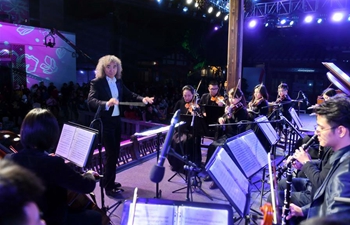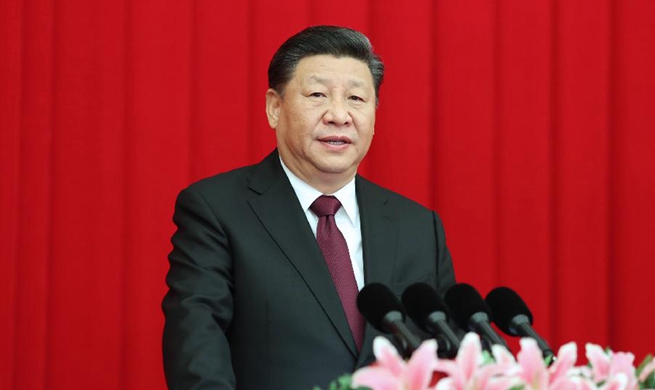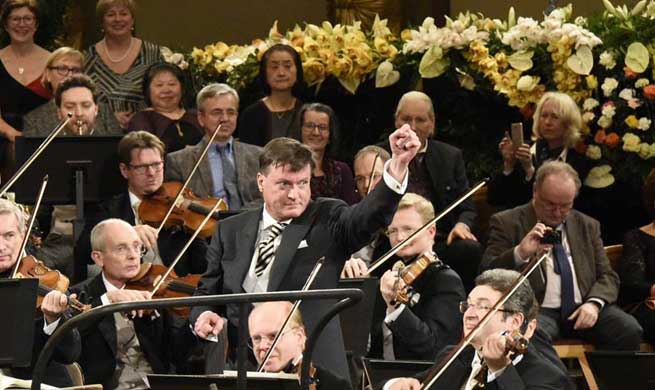WUHAN, Dec. 31 (Xinhua) -- Colder months mean a lot of time stuck indoors, and 37-year-old Guo Lili from central China city of Wuhan decided not to let that time go to waste, so he picked up a new hobby: learning to play the cello.
Like many other Chinese urbanites who turn to music as their spare time entertainment, Guo is a regular of musicals, stage plays, and concerts during the weekends and holidays.
China's top online ticketing platform Damai.cn saw the number of music-related shows that went on sale in 2018 grew by 35.3 percent year on year, accounting for 14.7 percent of the platform's total performances.
In 2017, China has hosted over 24,700 music-related shows, bringing in a robust 5 billion yuan (about 728 million U.S. dollars), according to a report released by the China Association of Performing Arts.
Guo's cello teacher Zhang Xiaohui, a 26-year-old music graduate at the University of York, hopes to take advantage of opportunities arising from the people's increasing zeal for music. She settled down in Wuhan, her hometown city with its GDP surpassing one trillion yuan in 2014, and started her cello workshop.
Zhang said her students include not only pupils but also white-collar workers in their 30s or 40s. During the busy season, the number of her students can reach 80.
"Few schools in Wuhan had their own orchestras nearly two decades ago when I was in primary school," said Zhang, adding that music education at that time was something new, but is now commonplace.
Although the cello is considered a less popular choice compared with the piano and violin, Zhang's music workshop receives three to five inquiries per month, resulting in a new student each month on average.
According to statistics released by the China Musical Instrument Association in 2018, China's musical instrument market was valued at 4.48 billion yuan (about 650 million U.S. dollars) in 2017, making it the world's second largest instrument market.
Statistics also suggest that China's music education industry was over twice the market size of that of musical instruments in 2017.
"As people are getting wealthier and busier during workdays, their interests in hobbies are growing as well," said Professor Tan Jun with the Wuhan Conservatory of Music, adding that the booming music industry mirrors people's diverse leisure and artistic pursuits.
The increasingly frequent cultural exchanges between China and overseas orchestras and theaters in recent decades further enrich Chinese music lovers, said Tan.
Years ago, the most frequent question you might be asked by scalpers near theaters was "do you want to buy a ticket?" Now, it is "do you want to sell your tickets?" -- a fun fact shared by Zhang.
The young music workshop owner is not only a frequent stage performer but also a music show enthusiast. "Both western musicals and traditional Chinese dramas are gaining popularity," Zhang said.
Guo, also a music lover, said he rarely took his son to concerts or theaters since the little boy might be too young to understand, but the happy family now share the same hobby which is learning how to play instruments.
"Learning how to play an instrument is also a way to challenge your brain to stay sharper," Guo said.
















